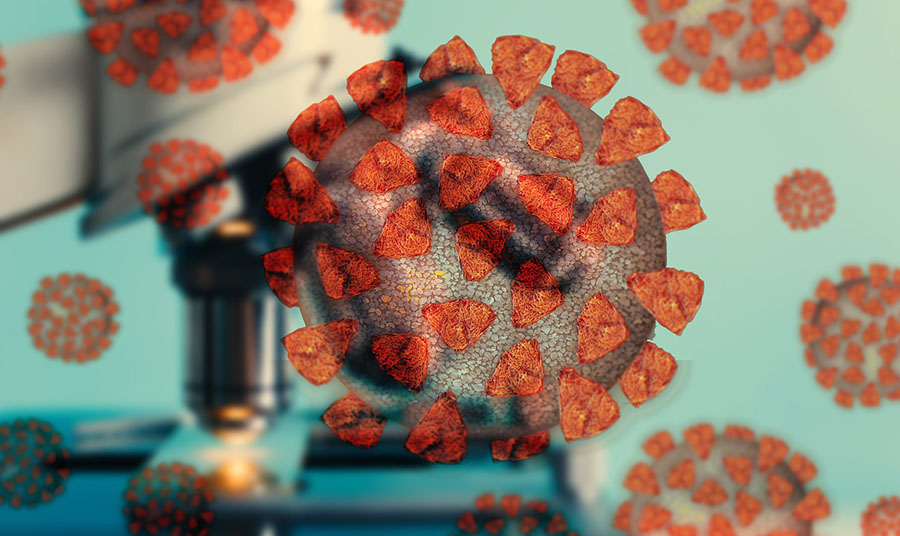The Life Sciences Report: Ron, NovaBay Pharmaceuticals Inc. (NBY:NYSE.MKT) looks like a turnaround story, with shares up more than 45% over the past three months. This follows disappointing results from a Phase 2b trial in viral conjunctivitis last August, a program that NovaBay has now set aside. Describe your new focus.
Ron Najafi: Our strategy, which we introduced last January, is to focus on the eye care market, and we are very excited about the commercialization of Avenova™, our product that manages the unmet medical needs of blepharitis and meibomian gland dysfunction, or dry eye syndrome.
Some background: When our NeutroPhase® product for chronic non-healing wounds became available to clinicians, my sister, who is an ophthalmologist, cataract surgeon and glaucoma specialist, took it upon herself to use NeutroPhase as a lid and lash hygiene product. NeutroPhase is formulated with Neutrox™, our pure hypochlorous acid, which mimics a naturally occurring substance produced by white blood cells to fight microbial invaders. She saw the potential of this product to address blepharitis and meibomian gland dysfunction, conditions that she was very sensitive to because she was seeing so many patients suffering from them. NeutroPhase has 510(k) clearance as a medical device, and physicians can use these products off-label when the intent is for the "practice of medicine." Although lid and lash hygiene has always been part of the treatment modality for blepharitis, there is no actual approved therapy for this chronic condition.
"We expect that China will represent significant market opportunities for both NeutroPhase and Avenova."
She saw significant successes in some patients with blepharitis and dry eye who were treated with NeutroPhase. We saw the opportunity and decided to prepare a unique formulation of the product for this eye care market. Avenova with Neutrox acts rapidly both as an anti-microbial and anti-biofilm agent, and as an anti-toxin that neutralizes the toxins secreted by the inflammation-causing biofilm. Avenova is a first-of-a-kind specialty lid and lash hygiene product.
TLSR: Ron, at the beginning of this year you increased the size of your direct medical sales force to promote prescription Avenova. How many representatives do you have in the field now, and how have you deployed them?
RN: We expanded our sales force from 10 to 35 people in February of this year, primarily because of market demand and the enthusiasm of ophthalmologists and optometrists to whom we were prospectively showing the product. We deployed the 35 reps using a unique targeting algorithm. We know the doctors who are effectively focusing on this opportunity, and we've deployed the sales force based on that methodology. We have medical reps in nearly all major cities in the U.S.
TLSR: You have inked distribution agreements for Avenova with AmerisourceBergen Corp. (ABC: NYSE) and Cardinal Health Inc. (CAH:NYSE)—two major wholesalers—as well as the largest and oldest of all, McKesson Corp. (MCK:NYSE). What kind of exposure is this giving you? Also, how do these distributors work in relation to your direct sales force?
RN: Avenova with Neutrox is a prescription product cleared as a medical device, and because of that the product must be accessible through major pharmacies around the country. The easiest way to establish distribution at these pharmacies is to go through the major wholesalers—McKesson, Cardinal and Amerisource. The prescription business is picking up very nicely. Of course, we also encourage doctors to have the product in their practices for the convenience of their patients. A lot of times the doctors are effectively selling the product from their practices, and a patient can walk out of the office with Avenova.
TLSR: How is Avenova priced to the patient?
RN: Avenova is being sold to patients at a retail price of around $30–40 for a one-month supply.
TLSR: Back in January you changed the name of your product from i-Lid Cleanser to Avenova. Obviously you wanted to differentiate the product, but why? What was the confusion?
RN: When a patient went to the pharmacy with the prescription, many times the pharmacist would direct the patient to the over-the-counter detergent-based eyelid and lash cleansers because of the name i-Lid Cleanser. We had to distinguish ourselves from over-the-counter, detergent-based eyelid cleansers.
We believe detergent-based lid and lash cleansers are not suitable for treating meibomian gland dysfunction because this condition is caused by lack of meibomian oil on the cornea. The last thing you want to use on your lid and lash is a detergent that will further dry out the eye. Although it seems like detergent may be a good thing to wipe away encrustation from the lid and lash, it is bad for the meibomian gland. Avenova is not detergent-based and has been shown to be antimicrobial in vitro, and is therefore more suitable for this condition.
TLSR: You referenced another NovaBay product called NeutroPhase for chronic, non-healing wounds that may harbor antibiotic-resistant bacteria, or cannot be dealt with by antibiotics alone. Some patients who were prescribed NeutroPhase have been saved from amputations. Tell me about NeutroPhase.
RN: NeutroPhase has been selected by the National Necrotizing Fasciitis Foundation (NNFF) as its official wound cleanser. Necrotizing fasciitis is a morbid condition resulting from flesh-eating bacterial infection. NeutroPhase has in vitro anti-toxin activity, as well as anti-microbial activity, and we hope and think it is an anti-toxin in vivo, as well.
"We're very proud of the fact that the National Necrotizing Fasciitis Foundation picked NeutroPhase as its official wound cleanser."
The flesh-eating activity is caused by very potent toxins that are produced by bacteria, and also by the human response to the toxins, namely cytokines. NeutroPhase has the ability to neutralize these toxins. Nearly 40 patients with severe necrotizing fasciitis have had success with NeutroPhase. Nobody has died. Nobody has lost limbs. We're very proud of the fact that the NNFF picked this product as its official wound cleanser.
TLSR: In March, your marketing partner, China Pioneer Pharma Holdings Ltd. (1345:Hong Kong), launched NeutroPhase in China, and you began shipping 200,000 units to China Pioneer. The market in China for just about anything is huge because the population is huge. How is the launch going?
RN: The launch started shortly after the Chinese New Year and it is going very nicely. The 200,000 units that we are shipping to China Pioneer are being primarily distributed as samples to various hospitals. China Pioneer will decide how to proceed with the various hospital bidding structures, and on the next steps in that country. The price of NeutroPhase in China is not controlled because it is a private-pay product.
As you say, China is a huge market. There are 6 million patients diagnosed with chronic, non-healing wounds each year in the U.S. You can multiply that by 10 for China. We expect that China will represent significant market opportunities for both NeutroPhase and Avenova.
TLSR: Ron, since you are in the launch and ramp-up phase with Avenova right now, your 2015 revenues will not be representative of what sales will look like over the longer term. Are you guiding investors, as yet, on what your revenue run rate will be by the end of 2016?
RN: We have not provided any guidance, and we're not planning to do so until we have longer-term visibility on our sales trend. I can tell you that we doubled sales from Q4/14 to Q1/15. Doubling sequentially every quarter is not sustainable, but we expect to have respectable quarter-over-quarter increases. By the end of 2015, we may be in a better position to take a crack at what 2016 might look like.
TLSR: Give us some idea of the market for Avenova. How large is that opportunity?
RN: There are about 24 million patients in the U.S. who suffer from blepharitis, and another 6 million with meibomian gland dysfunction. One bottle of Avenova will provide enough solution for one month of lid and lash hygiene. If all of these patients used only one bottle of Avenova per year, the potential size of the market is $600 million.
Of course we at NovaBay don't expect every patient to use Avenova. But if just one in four potential patients bought just one bottle of Avenova per year, that would represent a $150 million annual market opportunity for NovaBay.
"Avenova is a first-of-a-kind specialty lid and lash hygiene product."
Last quarter, our Avenova sales were $465,000, because we are still in the launch phase. Ophthalmologists and optometrists move at a glacial pace in adopting new products, but once they see the product working, and once patients begin asking doctors about Avenova with Neutrox, we believe we will see a tipping point. We hope that point will occur sometime in 2015. Right now we are only scratching the surface vis-à-vis the early adopters in ophthalmology and optometry.
TLSR: You have a Phase 2 clinical trial in progress with auriclosene (NVC-422) for urinary catheter blockage and encrustation. It's administered to patients as a urinary tract irrigant to reduce catheter blockage that can lead to severe health consequences. When will we see data from this study?
RN: Right now, we're enrolling patients in what is the Phase 2b stage of the trial. I think, at this pace, we'll have data toward the beginning of 2016.
In October of last year, we decided to focus entirely on the eye care market, and to spin off or license non-strategic assets. Consequently, this program is being presented to a number of potential partners.
TLSR: How have patients responded to this therapy, and how have the investigators responded to the program?
RN: We had such great success with this compound in our previous study that our investigators said, "You cannot stop this; it is too valuable for these patients." That is why we are keeping the program alive and enrolling patients.
TLSR: On June 3, you received 510(k) clearance from the FDA for your intelli-Case system, which disinfects contact lenses with hydrogen peroxide. My understanding is that, with this system, patients no longer have to fear irritation, burning or scarring of the cornea when cleaning and disinfecting their contact lenses with hydrogen peroxide. Tell me about this device and the market.
RN: This is a $200 million global market. Hydrogen peroxide contact lens disinfection systems are the gold standard, because hydrogen peroxide is a very effective anti-microbial and decomposes to just water and oxygen. But when you disinfect with multipurpose solutions, 20 different chemicals, such as chlorhexidine and polyhexamethylene biguanide, come in contact with the lenses. If you put a residual amount of a multipurpose solution in your eyes every day, over time you may develop an allergic reaction to one or more of the chemicals in these solutions.
Hydrogen peroxide is a no-brainer. It works and, as I say, the byproducts are just oxygen and water. So why haven't patients been using hydrogen peroxide systems? The total global market for contact lens disinfecting solutions is roughly more than $1 billion, but the global hydrogen peroxide market is only $200 million. It's because doctors worry that patients may misuse hydrogen peroxide and burn their eyes. They typically look for very compliant patients. With our high-tech intelli-Case product, we are making it very easy for the patient. It has no buttons; it's disposable and is good for 60 days. The patient buys the product with a two-month supply of hydrogen peroxide, which will be branded and packaged with our intelli-Case.
TLSR: No buttons? How does it start up?
RN: The moment you close the cap on the case and this unit touches the water in hydrogen peroxide, it wakes up a sophisticated microprocessor in the lens cap and starts working. On the top of the cap is a very simple "traffic light" sequence of LED alerts that indicate the status of the disinfecting cycle; you can watch the video on YouTube. On the video you will also see our director of medical services, Dr. Charles Francavilla, the designer of the intelli-Case.
TLSR: Is it your plan to have your 35 reps add the intelli-Case to their quivers as they go out and speak to ophthalmologists and optometrists?
RN: Initially, we plan to test market intelli-Case in San Francisco, because we are located in the area and we have resources and relationships in the eye care community here. Our plan is to distribute about 3,000 intelli-Case systems in the test market and listen to what doctors and patients have to say. We are targeting Q4/15 for test marketing.
TLSR: Ron, you have the big wholesalers getting Avenova into the pharmacies. How will you get the intelli-Case system into stores?
RN: We have two plans. The first is to partner with large companies in the ophthalmic space. These big companies would make great marketing partners. The intelli-Case should be available where people go for everyday items, like major grocery chains. If we don't find the right partnering opportunity, we will launch intelli-Case ourselves. Regardless, we're planning to test market in the San Francisco area to get a feel for the product. Hopefully, in early 2016, with or without a partner, we'll jump into the market.
TLSR: Ron, thank you.
Ramin ("Ron") Najafi is the founder of NovaBay. He has served as president since 2002, and as chief executive officer since 2004. Previously, Dr. Najafi served in various management positions within NovaBay, including as chief scientific officer. Prior to founding NovaBay, Dr. Najafi was the president and CEO of California Pacific Labs Inc., a chemical laboratory safety devices company. He has also held scientific roles at Rhone Poulenc Rorer (now Sanofi-Aventis), Applied Biosystems and Aldrich Chemical. Dr. Najafi received a bachelor's degree and a master's degree in chemistry from the University of San Francisco, and a Ph.D. in organic chemistry from the University of California, Davis.
Want to read more Life Sciences Report interviews like this? Sign up for our free e-newsletter, and you'll learn when new articles have been published. To see recent interviews with industry analysts and commentators, visit our Streetwise Interviews page.
DISCLOSURE:
1) George S. Mack conducted this interview for Streetwise Reports LLC, publisher of The Gold Report, The Energy Report and The Life Sciences Report, and provides services to Streetwise Reports as an independent contractor. He owns, or his family owns, shares of the company mentioned in this interview: None.
2) NovaBay Pharmaceuticals Inc. paid Streetwise Reports to conduct, produce and distribute the interview.
3) Dr. Ramin Najafi had final approval of the content and is wholly responsible for the validity of the statements. Opinions expressed are the opinions of Dr. Najafi and not of Streetwise Reports or its officers.
4) The interview does not constitute investment advice. Each reader is encouraged to consult with his or her individual financial professional and any action a reader takes as a result of information presented here is his or her own responsibility. By opening this page, each reader accepts and agrees to Streetwise Reports' terms of use and full legal disclaimer. Additionally, Dr. Najafi has made numerous forward-looking statements during this interview. It is recommended that readers review NovaBay's SEC filings for descriptions of risk factors that may cause actual results to be materially different from those stated in this interview.
5) From time to time, Streetwise Reports LLC and its directors, officers, employees or members of their families, as well as persons interviewed for articles and interviews on the site, may have a long or short position in securities mentioned. Directors, officers, employees or members of their families are prohibited from making purchases and/or sales of those securities in the open market or otherwise during the up-to-four-week interval from the time of the interview until after it publishes.




























































